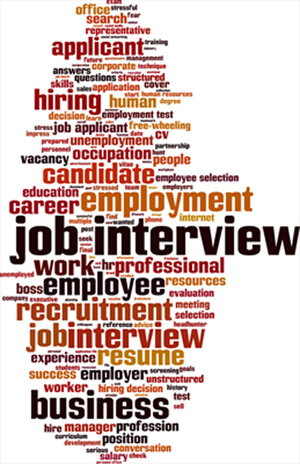 When recent college grads are asked what lessons they learned from their first successful job search, or what they wished they had done differently, three messages are clear. You’ll accelerate your own job search if you learn from what your older friends wish they’d known before starting out.
When recent college grads are asked what lessons they learned from their first successful job search, or what they wished they had done differently, three messages are clear. You’ll accelerate your own job search if you learn from what your older friends wish they’d known before starting out.
1. Networking is everything!
Don’t be afraid to contact people. If someone is a jerk to you, just ignore them and move on.
That’s the advice of Lucas, a University of Texas grad, now a freelance television production assistant.
Lee, a grad from the University of Ontario Institute of Technology, who went to work for Enterprise Rent-a-Car, was surprised at the incredible networking value his school friends provided:
It’s not what you know. It’s who you know. The biggest thing I took away from school was to be successful you need to network. My fraternity was the best thing that ever happened to me.
Daniel, a Penn State grad who now works at the U.S. Department of Justice, agrees:
Definitely tap into your alumni base. At PSU, people who you’ve never met will help you just because you’re both alums. I didn’t realize that. There are so many Penn Staters in D.C., and they’re really welcoming. It doesn’t matter how old you are.
2. Develop realistic expectations and stay positive.
Going into a job search with more realistic expectations and making a conscious effort to maintain a positive attitude is another key lesson. These are closely linked because having unrealistic expectations is a common source of frustration, discouragement, and inaction. Zoey, who became an event planner after graduating from Central Michigan University, observes:
My ego and expectations were a lot higher when I started looking after college. Now I’d be more humble. You have to have the ability to get knocked over a few times and just get back up, and not be fazed by rejection. It’s an exhausting process.
Myra, who graduated from Brown University as a double major in English Lit and Spanish, adds:
When I graduated I thought success went to those who worked hard and got results. Since then, I’ve learned it’s the most politically savvy and emotionally intelligent —that’s who succeeds in the job market.
Ethan needed a job right after graduation because his parents weren’t supporting him financially. He adds another caution:
I tell students you need to lower your expectations about pay. If you expect to make $50,000 coming out of college, you’re crazy.
Because job searches take longer today, you can be doing everything right, and still you have to find ways to maintain your stamina and confidence longer than you’re used to. Taylor learned this during her senior year at the University of Illinois.
I got pretty far in the interviewing process with several companies. When that happened, I’d stop pursuing other opportunities. Then when I didn’t get the job, I’d have to start all over. That was the most frustrating part. I’d get really depressed because the process was so difficult.
Sara, a Beloit College grad who worked hard to break into the nonprofit world in Chicago, learned the psychological value of sustaining momentum:
Stay positive, but don’t get cocky. Just because you have one interview set up, don’t stop looking. It’s fine to be interviewing at four places at once.
3. Use career services more often.
Taylor, a psychology major who eventually landed a job with an investment bank, reflects on her experience:
I wish I had been more open-minded. Learn about the career services your school offers right away. Don’t put it off. Even if you aren’t looking for a job, start to learn how to do a search. It will help you when you’re a senior.
Olivia, a Georgetown University grad working in Internet marketing, echoes this idea:
There’s nothing to lose by taking full advantage of your school’s career center. They’re trying to make you successful after graduation.
And Tobias, who worked as a contractor at Google after graduating from Brandeis University, adds:
I should have gone to career services and identified a short list of companies I’d be interested in. Or, at least, I should have used them to figure out local companies where alumni worked.
Lily wishes she tapped other resources while still at UC-Santa Barbara.
I should have talked more with my professors to get a better idea of where I was going. I wish I’d used their connections more.
If you’re in a school with an understaffed career center, don’t hesitate to turn to some of the professors you’ve connected with. Make an appointment and ask for advice and ideas about career options and get ideas of others you can talk to.
Take advantage of what your older friends have learned: (1) networking is everything, (2) set realistic expectations, and (3) use your career center for all it’s worth! Take their advice and your job search will go much faster. For more helpful job search tactics based on the experiences of recent grads, check out my book “Graduate to a Great Job: Make Your College Degree Pay Off in Today’s Market.”
What’s your experience? Share what you wish you had known in the comments section below.
